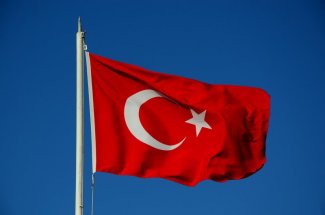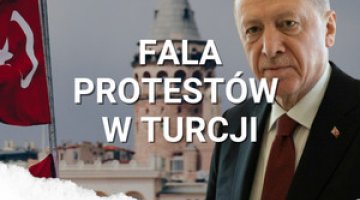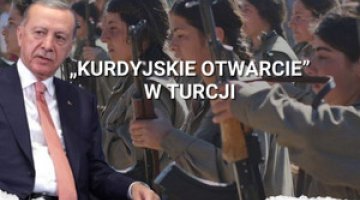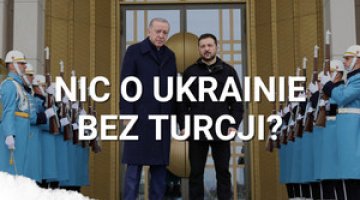Caution and anticipation: Turkey and the Russo-Ukrainian war

Turkey’s official attitude towards the Russia-Ukraine war is essentially in line with NATO’s position on the conflict (it has shown support for Ukraine’s sovereignty and territorial integrity, including in the UN, and provided material aid), but it has also avoided any actions or rhetoric which would clearly strike at Russia’s interests (no sanctions, its airspace remains open, etc.). Turkey has officially called for a political solution to the conflict (it initiated and hosted talks between the Ukrainian and Russian foreign ministers on 10 March). This policy resembles Ankara’s traditional approach: nurturing and protecting its extensive political, economic and military relations with both Kyiv and Moscow, while balancing and playing off the West’s and Russia’s interests without formally breaking ties with either side. In the current situation, this attitude appears as an expression of Turkey’s alarmed stance at the prospect that the conflict between Russia and the West might escalate; that the Turkish economy could collapse; and above all, that the war might have disastrous results for Turkey’s security in the Middle East.
Restraint and discretion
Turkey’s attitude to the war remains moderate and reactive in nature. It condemned the invasion late, in response to events which came as a surprise to Ankara: both Ukraine’s strong resistance and the unexpectedly strong position adopted by the West (NATO and the EU). Turkey has largely supported NATO’s political line, launching an aid programme for Ukraine – officially purely humanitarian, but likely to include military support, including the delivery of drones (the only official comment, by the deputy foreign minister, allowed for the probability that a private Turkish company producing such equipment, can undertake such ‘commercial activity’). Another gesture of Turkey’s support, was its long-postponed activation of the Montreux Convention (Article 19) regarding the Black Sea Straits; which in effect closed entry to all Russian ships that do not belong to the Russian Black Sea navy. However, this decision is of limited military importance. Turkey remains in constant contact with NATO countries, while also holding intensive talks with Ukraine.
Ankara’s moves so far fit in with the general pro-Ukrainian line. They have primarily been restrained, discreet and rhetorically subdued, although they have also been balanced by gestures towards Moscow. These include refraining from introducing economic sanctions, leaving its airspace open to Russian planes (and increasing the number of commercial flights to & from Russia), and maintaining political dialogue (including at the presidential level). As a result, the Kremlin’s massive condemnation of the West and NATO has only had a limited direct effect on Turkey. Moscow also agreed to NATO member Turkey’s initiative to host the first Russo-Ukrainian talks at the foreign-minister level since the outbreak of the war (they were held in Antalya on 10 March).
Traditional balancing policy?
Turkey’s actions to date recall its political habit of balancing between extremes, playing antagonists off against each other, and focusing on its national interests. Turkey has developed intensive political, economic and military contacts with both the combatant states, both of which play an important role in Turkey’s overall strategy. Dialogue and cooperation with Russia (which have at the same time frequently been accompanied by fierce rivalry, at times threatening armed confrontation) are indispensable elements of Turkey’s policy in Syria, but also in the Caucasus. Russia remains Turkey’s most important supplier of natural gas (from Russia’s point of view Turkey is currently a particularly valuable customer of this resource, and an important gas export route), a significant trade partner and main client of its tourist sector (Russians and Ukrainians together account for about 30% of the country’s yearly visitors). Relations with Ukraine have also been intensively developed, at the political (dialogue, including Turkey’s support for the autocephaly of the Ukrainian Orthodox Church), military (including cooperation between the armaments industries and Ukraine’s purchases of drones) and trading levels (they signed a free trade agreement this February). The concept of balancing and playing off different sides also applies to Turkish policy in its triangle with the West and Russia. Turkey remains an organic part of the West, but its relations with them remain strained. In the security dimension, regardless of Turkey’s NATO membership, Ankara is engaged in disputes with the US in the Middle East, and with the US & the EU in the Mediterranean region. Another area of conflict involves Turkey’s purchase of Russian S-400 air defence systems. In the political dimension, Ankara’s otherwise strong relations with the EU have been overshadowed by Turkey’s accusations that Western states have been interfering in its internal affairs; and on the other hand, by Turkey’s economic policy that remains a serious source of problems for the EU. Although the strategic relationship between Turkey, NATO and the EU has never been questioned, Russia has repeatedly ‘replaced’ the West in Turkey’s foreign/defence policy orientation (as in the case of the above-mentioned air defence systems); in retrospect this has temporarily increased Ankara’s freedom of action, and allowed Moscow to undermine the cohesion of the West & NATO.
In this perspective, Turkey’s restrained policy towards the war in Ukraine appears to have the following objectives: maintaining NATO’s fundamental cohesion; maximum protection of the country’s economic interests and minimising any war related costs; avoiding retaliation from Russia (for example, in Syria); maintaining the state’s privileged position in keeping channels open for political dialogue with all states involved in the conflict, both directly and indirectly; whilst keeping on the table options that allow Turkey to play off tensions between its various partners in the future.
Turkey in a new reality
However, despite the outward appearance of continuity, Turkey and its policy now appears to be facing new, radically dangerous challenges. Some of these have been reflected in the aforementioned Turkish perspective, others in the economic consequences of the war – both those already apparent, and ones which could yet arise. On the other side of this debate, there is a conviction in Turkish political discourse that the Russo-Ukrainian war will not be so much a time-limited local conflict as (yet another) manifestation of the escalating and fundamental confrontation between the US and Russia. Revealed in this context is the historically well-established fear of Turkey’s objectification, together with its traditional distrust of alliances (including that with the US, which enjoys little public sympathy in Turkey and, in Ankara’s opinion, frequently violates Turkey’s ‘existential’ interests in the Middle East; or with NATO, which remained passive during the serious crisis after Turkey shot down a Russian plane on the Syrian border in 2015) along with a sense of threat coming from Russia’s side. If the status of the war in Ukraine rises to a supra-local level, this will raise concerns in Turkey about stability of the Middle East: either as a result of the assumed Russian-American rivalry extending into this region, or as a result of a possible ‘vacuum’ arising there. This combines with concerns about the future of Iran and its nuclear programme; and finally, the social stability of the Middle East, which could be shaken if supplies on the grain market fall noticeably (which could happen because of the very large role played by both Russia and Ukraine in international grain trade).
This perception of the situation, in result, is accelerating Turkey’s attempt to normalise its relations with the countries of the Middle East and the Mediterranean region, forcing these states to coordinate joint policy actions. The upcoming Antalya Diplomatic Forum (Turkey) scheduled for 11–13 March, and the resumption of relations with Israel (as shown in the visit paid on 9–10 March by President Yitzhak Herzog, who largely shares Turkey’s dilemmas regarding the war), and to a lesser extent the renewed dialogue with Armenia, are all taking place in this mindset. Given these assumptions, getting involved on one side or the other of the Ukrainian conflict (especially if it drags on without resolution) would at the very least be counterproductive for Ankara.
An even more tangible, dangerous and immediate effect of the war in Ukraine, is the threat that it poses to Turkey’s internal stability. The country is experiencing a severe financial crisis, which in the present conditions could become considerably worse. Another direct effect of the war is the sharp rise in energy prices, which will directly hit state finances, the economy and society at large. There have already been serious surges in food prices (that of imported sunflower oil, which is important both for the Turkish food industry and private households, has risen by 60%), and there is a risk that production and export of grain from Ukraine and Russia will collapse (these make up around 80% of all Turkish imports, and nearly half of consumption). Thus, the potential for public discontent in Turkey is growing rapidly, exacerbated by the fatigue that many Turkish people feel with the AKP’s domination of the political scene for over 20 years. Undoubtedly, effectively guaranteeing internal stability is and will remain Ankara’s priority during the war – much higher than its traditional balancing act in international politics, or the short-term protection of Turkish businesses.
Perspectives
In the context of the interests, opportunities and challenges facing Turkey – as well as in the absence of any settlement in Ukraine – it is most likely that the country will continue its current policy towards the ongoing war. This would mean displaying enormous rhetorical restraint, keeping open its political channels with both Ukraine and Russia as much as possible, and remaining within the broadly understood consensus held by Western/NATO states, with an emphasis on de-escalating the conflict – albeit with the national interest of Turkey as an overriding priority.
On the other hand, Ankara’s approach may be altered if it is confronted with both an internal social & economic crisis along with escalating tensions in the Middle East. In this (currently hypothetical) variant, Turkey and its policies would become significantly less predictable.




